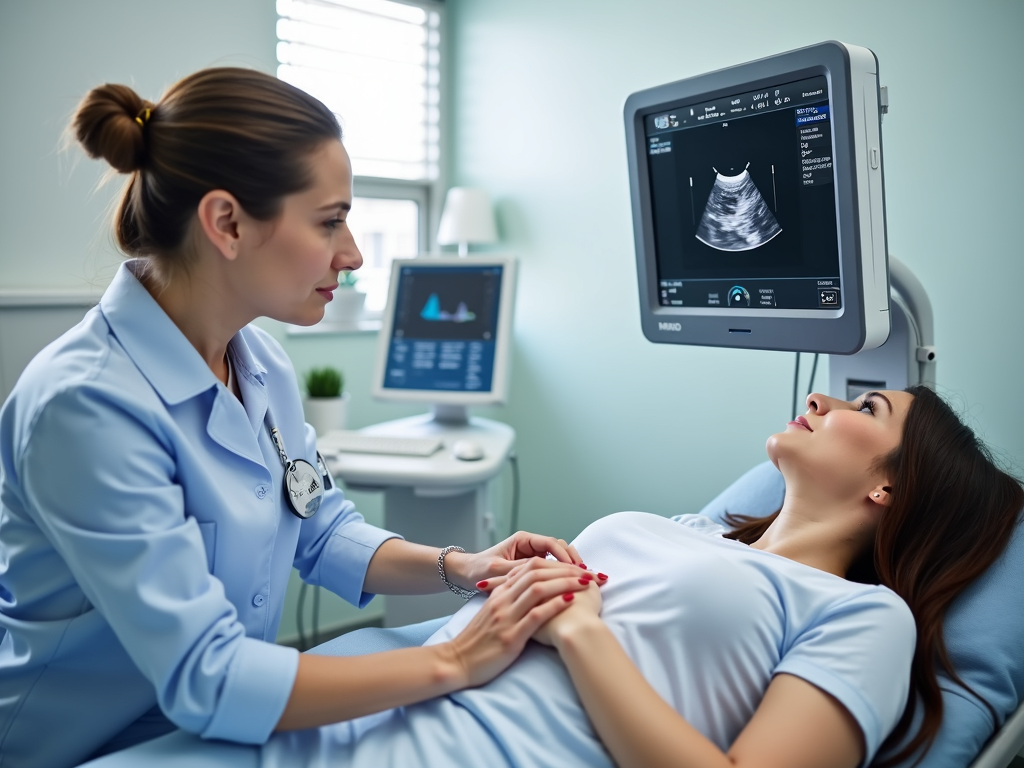Understanding Egg Freezing: A Guide for Cancer Patients
June 23, 2025, 7:28 a.m.
Egg freezing, or oocyte cryopreservation, is a fertility preservation technique that allows women to store their eggs for future use. This is particularly important for cancer patients, as treatments like chemotherapy and radiation can affect fertility. By freezing eggs before treatment, patients can increase their chances of having biological children later.

What is Egg Freezing?
Egg freezing involves several steps. First, a woman undergoes ovarian stimulation with hormonal injections to produce multiple eggs. These eggs are then retrieved through a minor surgical procedure and frozen using a technique called vitrification, which prevents ice crystal formation and improves survival rates. The frozen eggs can be stored for many years and thawed when the woman is ready to use them.
Why Egg Freezing is Important for Cancer Patients
Cancer treatments can have a significant impact on fertility. Chemotherapy and radiation can damage the ovaries, leading to reduced egg quality and quantity. For women who wish to have children after their cancer treatment, egg freezing offers a way to preserve their fertility. It's essential to discuss fertility preservation options with a doctor as soon as possible after a cancer diagnosis, as the timing of egg freezing is critical. According to the American Society of Clinical Oncology, fertility preservation should be discussed with all patients of reproductive age if infertility is a potential risk of therapy.

The Egg Freezing Process
-
Consultation: The process begins with a consultation with a fertility specialist. During this meeting, the doctor will explain the procedure, discuss the risks and benefits, and assess the patient's suitability for egg freezing.
-
Ovarian Stimulation: The patient will receive hormonal injections to stimulate the ovaries to produce multiple eggs. This phase typically lasts 10-14 days.
-
Monitoring: Throughout the stimulation phase, the patient will have regular ultrasounds and blood tests to monitor egg development and hormone levels.
-
Egg Retrieval: Once the eggs are mature, they are retrieved through a minor surgical procedure. The patient is usually under sedation, and the procedure takes about 20-30 minutes.
-
Freezing: The retrieved eggs are then frozen using vitrification. This rapid freezing technique helps preserve the eggs' quality.
-
Storage: The frozen eggs are stored in liquid nitrogen tanks at a fertility clinic or storage facility. They can remain frozen for many years without significant deterioration.

Considerations for Cancer Patients
-
Timing: Ideally, egg freezing should be done before starting cancer treatment. However, some treatments may allow for a short delay to accommodate the egg freezing process. It's crucial to coordinate with both the oncologist and the fertility specialist to determine the best timing.
-
Costs: Egg freezing can be expensive, with costs varying depending on the clinic and location. In the United States, the average cost is around $10,000-$15,000, not including storage fees. Some insurance plans may cover part of the cost, and there are organizations that offer financial assistance or discounts for cancer patients, such as the Livestrong Fertility program.
-
Emotional Aspects: Deciding to freeze eggs while facing a cancer diagnosis can be emotionally challenging. Patients may feel overwhelmed by the additional decisions and procedures. It's important to seek support from family, friends, counselors, or support groups. Many fertility clinics also offer counseling services to help patients navigate this process.

Success Rates and Expectations
The success of egg freezing depends on several factors, including the woman's age at the time of freezing, the number of eggs frozen, and the quality of the eggs. Generally, younger women have higher success rates because they tend to have more and better-quality eggs. According to the Society for Assisted Reproductive Technology, the live birth rate per thawed egg is approximately 2-12% for women under 35, decreasing with age. It's important for patients to have realistic expectations and understand that egg freezing does not guarantee a future pregnancy. However, it does provide an option that may not otherwise be available after cancer treatment.
Alternatives to Egg Freezing
While egg freezing is a common fertility preservation technique, there are other options available:
-
Embryo Freezing: This involves fertilizing the eggs with sperm before freezing. It requires a sperm donor or partner and may not be suitable for all patients.
-
Ovarian Tissue Freezing: This experimental technique involves removing and freezing ovarian tissue for later transplantation. It may be an option for patients who cannot delay cancer treatment.
-
Fertility-Sparing Surgery: For certain types of cancer, such as early-stage cervical cancer, surgical techniques can preserve fertility by removing only the cancerous tissue and leaving the reproductive organs intact.
Patients should discuss all available options with their healthcare team to determine the best approach for their situation.

Emotional and Psychological Aspects
Facing a cancer diagnosis is a life-altering event, and the prospect of potential infertility can add to the emotional burden. Deciding to pursue egg freezing involves weighing the desire for future children against the immediate need to treat the cancer. Patients may experience a range of emotions, including hope, anxiety, sadness, and uncertainty. It's normal to feel overwhelmed, and seeking support is crucial. Many cancer centers and fertility clinics offer counseling services, and there are support groups specifically for cancer patients facing fertility issues. Connecting with others who have gone through similar experiences can provide comfort and guidance.
Summary
Egg freezing is a valuable fertility preservation technique for cancer patients, offering the possibility of having biological children after treatment. While the process comes with challenges, including timing, costs, and emotional considerations, it provides hope for the future. Patients should consult with both their oncologist and a fertility specialist as soon as possible after diagnosis to explore their options. With the right support and information, patients can make informed decisions about their fertility preservation journey.
